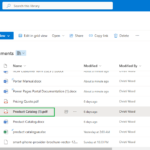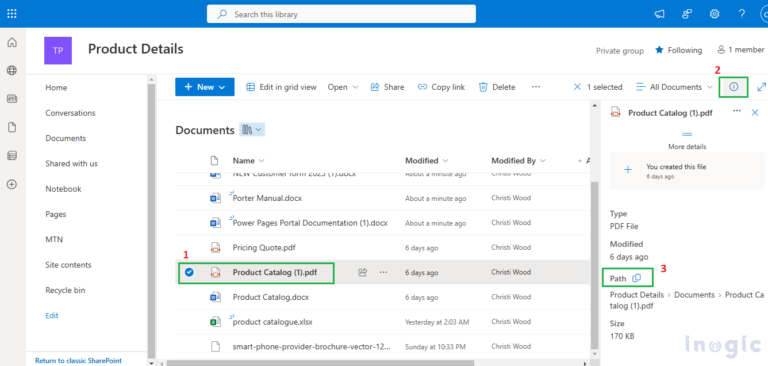Let’s say you start your workday by checking your email and going over your sales stats. You peek at your calendar to confirm a few meetings. Then, you get pinged with an urgent message from a coworker and jump on a quick call to chat. You just used four business tools and your day has just begun.
No matter your goals, there are tools you can use to save time, reduce errors, and increase your bottom line. We’ll break down the top tools essential for growing your small and medium-sized business (SMB) and the key features to look for in a variety of solutions.
What you’ll learn
Small business tools are software and services that help streamline operations, increase productivity, and automate simple and repetitive tasks you must do every day. And there’s a tool for almost everything you can think of — from project management and productivity to data analytics and accounting.
While tools have always been essential for small businesses, the rise of AI has made many of these tools more efficient and effective. Automation is one key advantage of AI-powered tools. By automating routine tasks such as invoicing, inventory management, and email marketing, businesses can reduce their teams’ time and effort, freeing up their days for more important tasks like strategy and selling.
Some small business tools can significantly boost productivity by streamlining daily operations. For example, you can use project management tools to enhance collaboration and keep teams on track. With 360-degree project visibility, everyone can see their progress, responsibilities, and deadlines all in one place, making it easy to see tasks to completion.
The only tool your SMB really needs
Whether you’re just starting out or growing like crazy, check out Salesforce Starter Suite for all your small business needs.


Data analytics and reporting tools can provide valuable insights about your business. Keep an eye on your financial progress, get a better understanding of your customer’s behavior, and use dashboards to track key performance indicators (KPIs) — all in real time.
Communication tools such as instant messaging and video conferencing make it possible to connect instantly with customers and clients — reducing the delays of traditional email. These tools help you stay connected no matter where you are. Remote, hybrid, and onsite teams can operate smoother, respond to customer needs quicker, and achieve better results with less effort.
For sales and service teams, customer relationship management (CRM) software is an essential part of the puzzle. CRMs offer a comprehensive view of customer data. This provides a single source of truth for your business and allows for more strategic decision-making and personalized engagement. When choosing other tools, look for CRM-compatible integrations so you can use your data everywhere, collaborate across teams, and simplify your workflows. (Back to top.)
Before you decide on any tool, be sure to read the fine print. Some tools have terms and conditions that state that the platform can access users’ content by manual and automated methods. This is something to think about if your company deals with proprietary products or sensitive materials.
When choosing what tools are right for your small business, look for features that enhance functionality, efficiency, security, and scalability. These might include things like:
A user-friendly interface
To avoid spending precious time learning a new platform, make sure the tools you choose are intuitive and easy to use. Some tools have a steep learning curve and require hours of training, while others are intuitive and built for user-friendliness.
Integration capabilities
Few things are more frustrating than buying software that’s incompatible with the system you already have in place. Look for tools that can integrate seamlessly with other programs you frequently use such as email, CRM software, accounting, and e-commerce platforms.
Automation capabilities
To save time and reduce human error, choose tools that can automate repetitive tasks. Automation capabilities enable software to perform tasks without human intervention from simple mechanized processes to complex algorithms that drive artificial intelligence (AI) and machine learning. Automation is used across various industries for purposes such as improving efficiency, reducing errors, increasing production speed, and lowering operational costs.
Customization
Ideally, tools should be flexible enough to customize dashboards, reports, and workflow processes. Tools that can be tailored to your specific business needs mean you can work through tasks quickly and seamlessly.
Collaboration features
The ability to collaborate in real time with shared workspaces, chat, and video conferencing is a game changer for companies because it allows for things like remote work and instant communication.
Scalability
Make sure your tools can grow along with your business, easily handling increased data, users, and complexity without a significant drop in performance.
Security
Data breaches are a serious and ever-evolving problem — even for small businesses. To keep your information from getting into the wrong hands, look for enhanced security measures such as data encryption, secure access controls, and automated backup.
Analytics
Make data-driven decisions with a tool that tracks key metrics and has comprehensive reporting capabilities. This type of reporting involves the use of specialized tools that can process large volumes of data to identify trends, patterns, and anomalies. The reports generated from analytics are used by organizations to understand performance, optimize processes, and guide strategic planning.
Customer support
The tool you choose should have easily accessible help resources for your customers, including live chat, email and phone support, or chatbots and self-service options. (Back to top.)
About 93% of today’s small business owners report using at least one technology platform to help run their businesses, according to a study by the U.S. Chamber of Commerce. An additional 85% of owners reported that technology platforms helped get their businesses up and running, and 94% said that technology helps them run their businesses more efficiently.
Digital tools are effective at increasing production by streamlining operations and automating repetitive tasks. Other features that fuel growth include:
- Enhanced collaboration: Many tools improve team collaboration with features like real-time communication, task tracking, and project management.
- Accurate analytics: Reporting features in some tools use data to generate tables, graphs, and other visualizations to provide insights into customer behavior, sales trends, and operational performance.
- Market expansion: Ecommerce platforms can help businesses reach clients all over the world. These tools can also help build your customer base by creating targeted marketing campaigns and managing your company’s social media presence.
- Cost savings: When you implement the right tools, you reduce the need for manual labor and minimize human error, helping your business save money. These savings can be applied to other areas of the business, like product development, marketing, or expansion. (Back to top.)
If you’re in sales, you probably already use a CRM. But with just 37% of sales professionals strongly agreeing that their organizations fully use theirs, according to the State of Sales report, you may be wondering whether you’re using your CRM to its full potential.
To turbocharge your efforts, consider add-ons designed to help your team with specific tasks like data analysis, engagement, and more. Be sure to look for tools that will integrate with your CRM and enhance your performance.
Here are some tools that easily integrate with Salesforce:
- Ambition: This sales management tool creates transparency around key metrics, improving visibility and simplifying reporting.
- Cirrus Insight: With Gmail and Salesforce integrations, this tool provides reliable email and calendar sync features.
- Clearbit: By enriching prospect data inside your CRM, this tool organizes potential customers’ contact information, including social media handles.
- Demandbase: An account-based development tool that gathers marketing, sales, and support teams into one interface.
- Drift: Using prospect engagement data directly from your website, this tool helps craft conversational messaging and hyper-personal chat functions.
- Guru: Connect all your apps, docs, and chats and get instant answers with AI search assistance.
- Tenfold: Build better relationships by integrating your data, workflow, and engagement systems. This tool is flexible and can connect with legacy phone systems and multiple CRMs.
Efficiency
8. Sales Dialer: This tool helps you more easily manage all your in- and outbound calls so you can communicate with prospects and customers efficiently.
9. Tableau: This analytics platform helps teams visualize and understand data, making insights available to everyone.
10. Writer: Build generative AI into any business process. Writer removes complexity so that you can focus on AI-first workflows.
Communication and collaboration
11. Dropbox: This cloud storage tool offers file sharing, synchronization, and collaboration with team members.
12. G Suite: When synced, G-Suite tools help you streamline productivity within your CRM. You can automatically log your email and calendar to optimize your workflow.
13. Slack: This messaging app supports real-time communication, file sharing, and integration with various productivity tools.
14. WhatsApp: This popular messaging app offers private messaging and free calls worldwide. When integrated with your CRM, you can create a messaging channel dedicated to customer support for your business.
15. Zoom: With the rise of remote work, Zoom has become an indispensable video conferencing platform that provides online meetings, webinars, and collaboration capabilities. Integration allows you to start and schedule meetings directly within your CRM.
Project management
16. Asana: A work management platform that helps teams organize, track, and manage their work efficiently.
17. Smartsheet: This tool lets you create reports and dashboards for greater visibility and alignment across your organization and with clients.
18. Trello: Using virtual bulletin boards, this collaboration tool helps teams organize projects, and their many details, in one place. CRM integration lets you attach leads, contacts, opportunities, and cases to virtual sticky notes.
19. Wrike: This tool helps streamline processes using automation, so teams can work together more efficiently.
Marketing
20. Starter Suite: This powerful CRM suite for small businesses includes email marketing capabilities, so you can easily build effective nurturing campaigns. Built-in analytics let you review performance so you can adjust your approach as needed.
21. BrightEdge: This SEO solution provides marketers with real-time keyword research, recommendations, and rankings. It reveals search query intent, shows top-ranking competitors, helps guide content creation and optimization decisions, and monitors content performance.
22. Optimizely: Use recommendations from your email content to encourage customer engagement on your website. This tool can also facilitate A/B testing to uncover insights and create high-performing web sites.
23. LinkedIn: Target buyers and companies that are a good fit for your products and services. Engage buyers with personalized outreach and save time by making sure everything is captured in your CRM.
Accounting and sales
24. Accounting Seed: This fully customizable tool eliminates the need for manual accounting. It’s scalable and seamlessly connects financial data across your company.
25. Commerce Cloud: Boost sales and ensure a smooth e-commerce journey across every customer touchpoint with AI insights, merchant dashboards, and more.
26. Conga Contracts: Close deals faster with automated contract creation, controlled negotiations, eSignatures, and streamlined reporting.
27. QuickBooks: This accounting tool helps SMBs with bookkeeping, payroll, and financial management. CRM integration lets you share data between sales and accounting — including customer information, sales orders, expenses, and invoicing. (Back to top.)
Small business tools are essential for today’s businesses to stay competitive. These digital tools have revolutionized the workforce, enhancing efficiency through automation. And, with less time spent on routine tasks, your employees will have more time to put their creativity and talents to work.
Ready to dip your toe into the world of CRM and digital tools? Dive in and see results on day one with Starter Suite.











